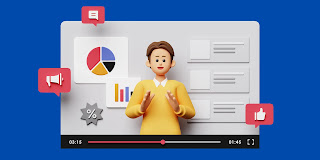The 3 Core Types of Podcasting (And How to Choose What Works for You)
Podcasting has evolved beyond just talking into a microphone. In 2025, it’s a multi-dimensional tool used for education, entertainment, thought leadership, and even full-time income.
But at its core, all podcasts fall into three distinct formats, and choosing the right one is a crucial first step to success.
Let’s unpack each type in depth so you can choose the one aligned with your voice, goals, and audience.
1. The Solo Podcast (Monologue-Driven)
What It Is
A solo podcast is a format where only one voice is heard, yours. No guests, no back-and-forth dialogue, just direct value delivery from host to listener.
But this isn’t about rambling thoughts. The most successful solo podcasters are structured storytellers, educators, or motivators.
Why It Works
- Deep audience connection — listeners feel like they know you personally
- Authority builder — ideal for thought leaders or educators
- Creative control — no scheduling, no coordination, full freedom
Best For:
- Coaches, consultants, educators
- Creators building a personal brand
- Entrepreneurs teaching niche skills (e.g., forex, digital products, mindset)
Real Examples of Episodes:
- “How I Went From $0 to $1,000 a Month With Print on Demand”
- “The 3 Myths Killing Your Affiliate Marketing Growth”
- “Mental Reset Routines for Digital Creators”
Watch Out For:
- Requires confidence, pacing, and structure, solo doesn’t mean freestyle
- You carry 100% of the energy and insight
- Repetitiveness if not planned intentionally
If your strength is storytelling or solo teaching, this format turns your voice into your brand’s strongest asset.
2. The Interview Podcast (Guest-Driven)
What It Is
An interview podcast revolves around bringing guests into your show, whether they’re industry experts, creators, entrepreneurs, or even everyday people with unique stories.
Why It Works
- Built-in audience exposure, guests often share your show
- Fresh perspectives every episode
- Networking machine, opens doors in your niche
Best For:
- Creators who want to grow fast by association
- Hosts with curiosity and great listening skills
- Those with access to interesting voices (even if via Zoom)
Unique Approaches That Stand Out:
- Micro-interviews: 10-minute lightning episodes with focused value
- Theme interviews: All guests discuss one focused topic
- Story-first interviews: Focus on emotional journeys, not just tips
Watch Out For:
- Scheduling and prep time add friction
- You rely on guest quality, not all guests are natural speakers
- It’s easy to become “just another interview podcast” without your own edge
The key to success here is not who you interview — but what you ask. Thoughtful, uncommon questions build memorable episodes.
3. The Co-Hosted Podcast (Conversational Format)
What It Is
This format brings two (or more) consistent hosts who share every episode together. Think of it as a recurring on-air partnership, equal parts chemistry and content.
Why It Works
- Built-in banter and flow, no guest needed
- Naturally entertaining when hosts mesh well
- Different perspectives attract wider audiences
Best For:
- Friends or colleagues who riff well together
- Entertainment, lifestyle, or pop culture podcasts
- Informal education niches (e.g., sports, crypto, daily news)
Standout Formats:
- Debates: Hosts take opposing views
- Challenge formats: One host tries something new each week
- News with commentary: Breakdown + personal takes
Watch Out For:
- Scheduling between co-hosts can become complex
- Unbalanced chemistry = awkward episodes
- It’s harder to pivot if the partnership falls through
Done well, co-hosted podcasts feel like being in the room with two smart, funny, or insightful people. But it requires real synergy and consistency.
Which Podcast Format Should You Start With?
Ask yourself:
|
Question |
Format Match |
|
Do I want full control and zero coordination? |
Solo |
|
Do I have access to or want to learn from others? |
Interview |
|
Do I have a co-host with real chemistry? |
Co-hosted |
|
Do I want fast audience growth through guest sharing? |
Interview |
|
Do I want to teach, not just talk? |
Solo |
|
Do I want entertaining discussions, not formal structure? |
Co-hosted |
There’s no single best type — but there’s one that fits your voice and your vision.
Final Thoughts: The Format Is Just the Beginning
Podcasting is not about which mic you buy or how long your episodes are.
It’s about what you have to say, and how you package that message consistently.
The format simply creates a container for your value. And when it aligns with your strengths, everything becomes easier, content planning, audience growth, monetization, and creative longevity.
Start with one type. Refine your voice. Then let the format evolve with your growth.







